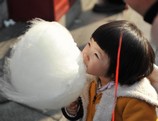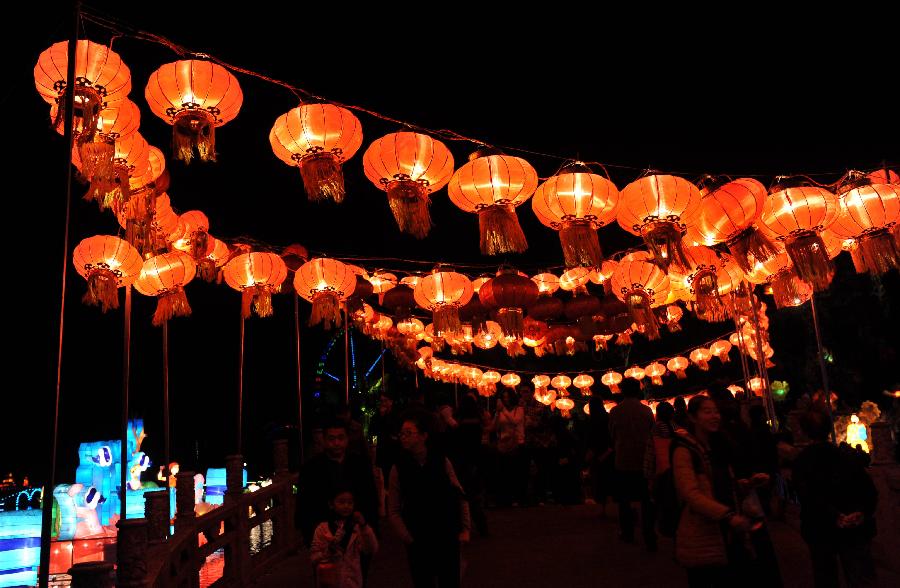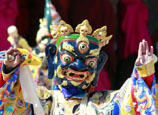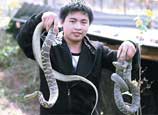
Chen Xiuzheng spent 15 yuan ($2.40) to have her two pots of nianju (New Year's potted oranges) and a big peach blossom branch carried out of her home on Wednesday morning.
"I buy the flowers before Spring Festival every year and have them dumped after the festival," said the 55-year-old housewife, who lives in a fifth-floor apartment in a housing estate in Guangzhou's Haizhu district.
"They are too heavy for me to carry from my home to the estate's waste collection center when my children have left home for work," she added.
Chen is just one of thousands of residents in the Guangdong provincial capital who are throwing out flowers that have faded after the beginning of Spring Festival on Feb 10.
According to an environmental sanitation employee in the city's Nonglinxia Road, workers have had to rack up overtime in recent days to handle the growing number of festive flowers that are being tossed by local government agencies, companies and residents after the Lunar New Year.
"Usually, the dumping of flowers and potted plants will not come to an end before the Lantern Festival, which is the 15th day of the first month of lunar Chinese calendar," the environmental sanitation worker said.
The city's Lunar New Year celebrations usually come to an end after the Lantern Festival, which fell on Sunday, he said.
"The several weeks after the festival are always the busiest period for environmental sanitation workers in this southern metropolis," he added.
The Guangzhou administrative committee in charge of the flower street fair said that around 92.7 million yuan worth of flowers changed hands during the three-day Spring Festival flower fair, which attracted more than 8.78 million buyers and visitors.
It is estimated that more than 10,000 metric tons of potted plants, flowers, tree branches and other festive products are abandoned annually by city residents.
To cope with the large amount of festive waste, the Guangzhou administrative committee of urban management issued a notice early this week that encouraged locals to classify festive waste before dumping it in local collection centers to reduce unnecessary waste.
Pots and earth will be transferred to local gardens, wetlands and nurseries and recycled, while flowers, tree branches and related waste will go to landfills and incineration plants.
And the city's urban management authority has announced 398 special centers citywide for the centralized collection of tossed potted plants, flowers and related festive waste.
Meanwhile, locals can also phone the urban management authority in advance for help, the notice said.
Residents of Guangzhou, which has been dubbed "the city of flowers", have a long history of buying flowers to decorate their homes during Spring Festival.
"In addition to potted oranges, I annually buy a bunch of lilies as my room's decoration for Spring Festival, while my son prefers peach blossoms," said Wang Xiaorong, a retiree in Yuexiu district.
"The flowers always seem to bring harmony and good luck to our lives for the entire year," she said.
According to a traditional Chinese saying, potted oranges mean good luck; lilies signify a couple will live together for 100 years; orchids mean elegance; and peach blossoms are lucky for those wooing the opposite sex
The traditional flower street fairs that take place annually in the three days before Spring Festival always attract thousands of locals and tourists who want to buy flowers.
The fairs, which are believed to date back more than 200 years to the Qing Dynasty (1644-1911), have become a major tourism attraction during Spring Festival.


















![]()
